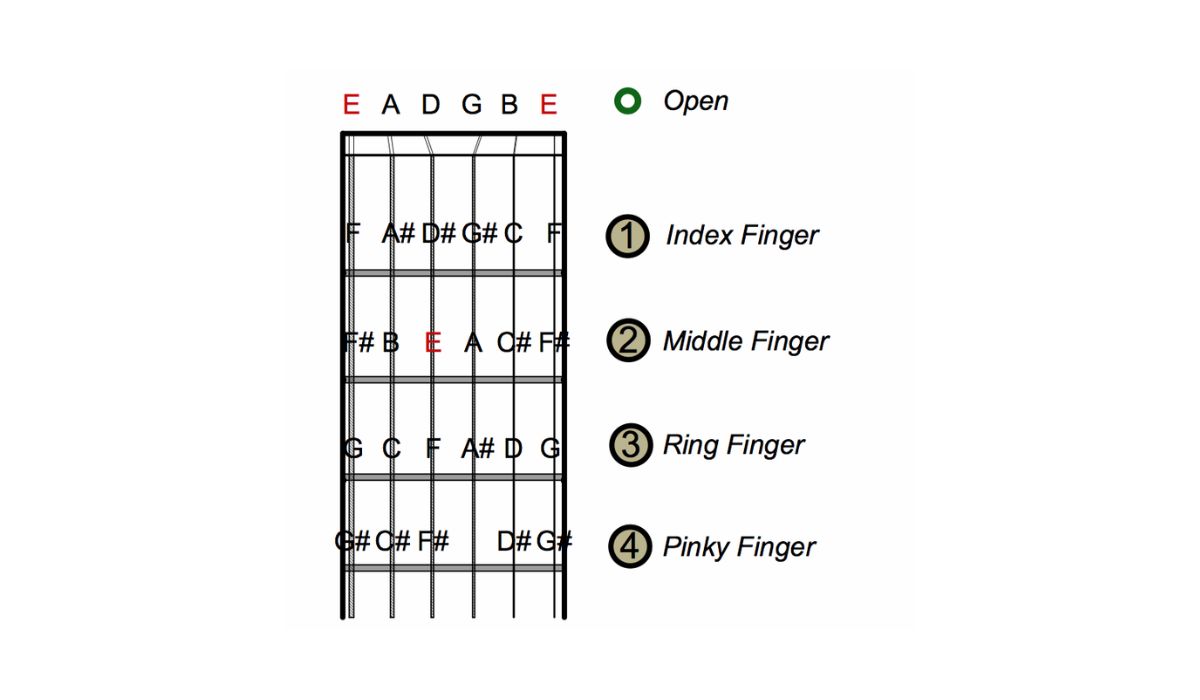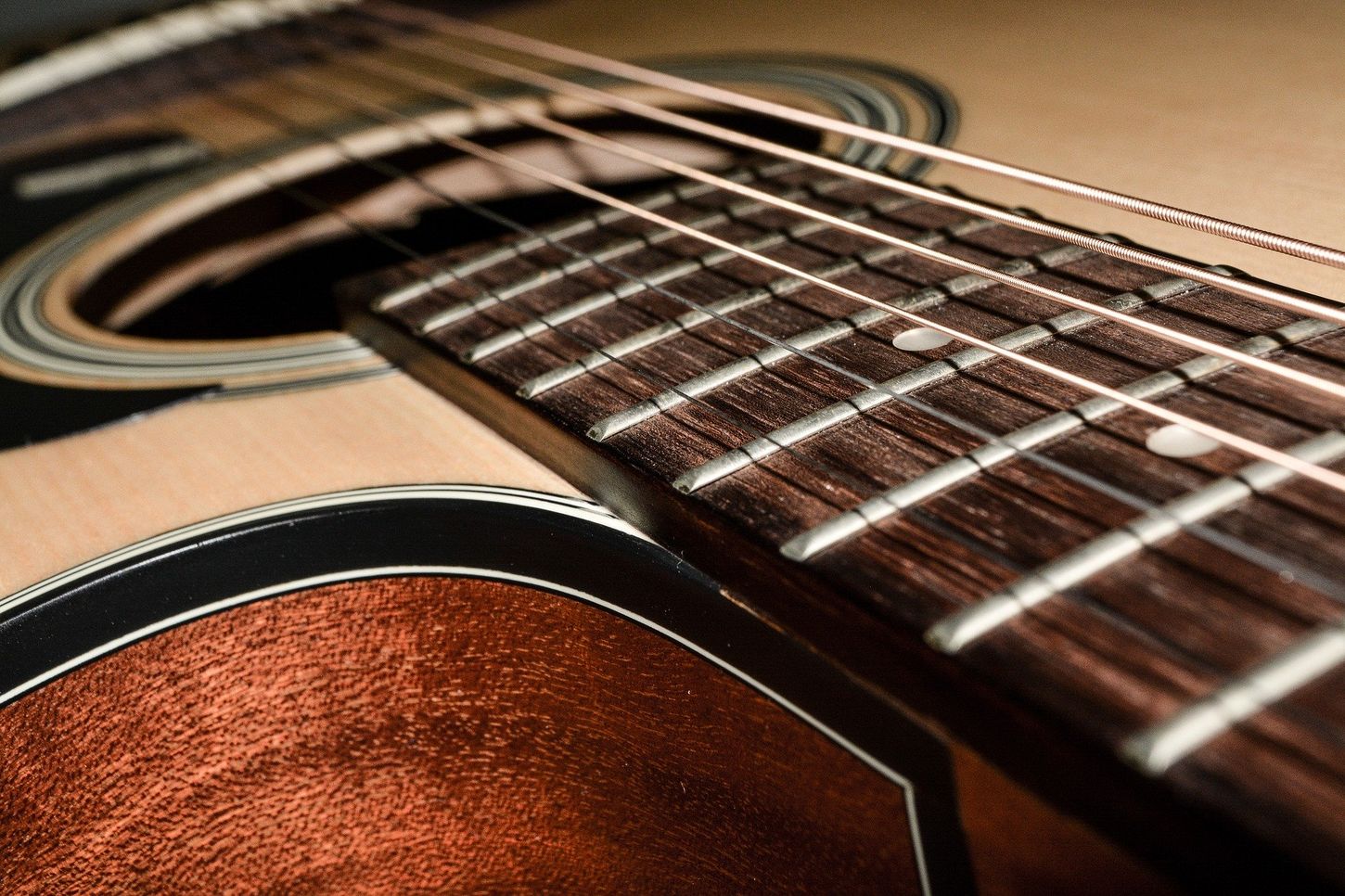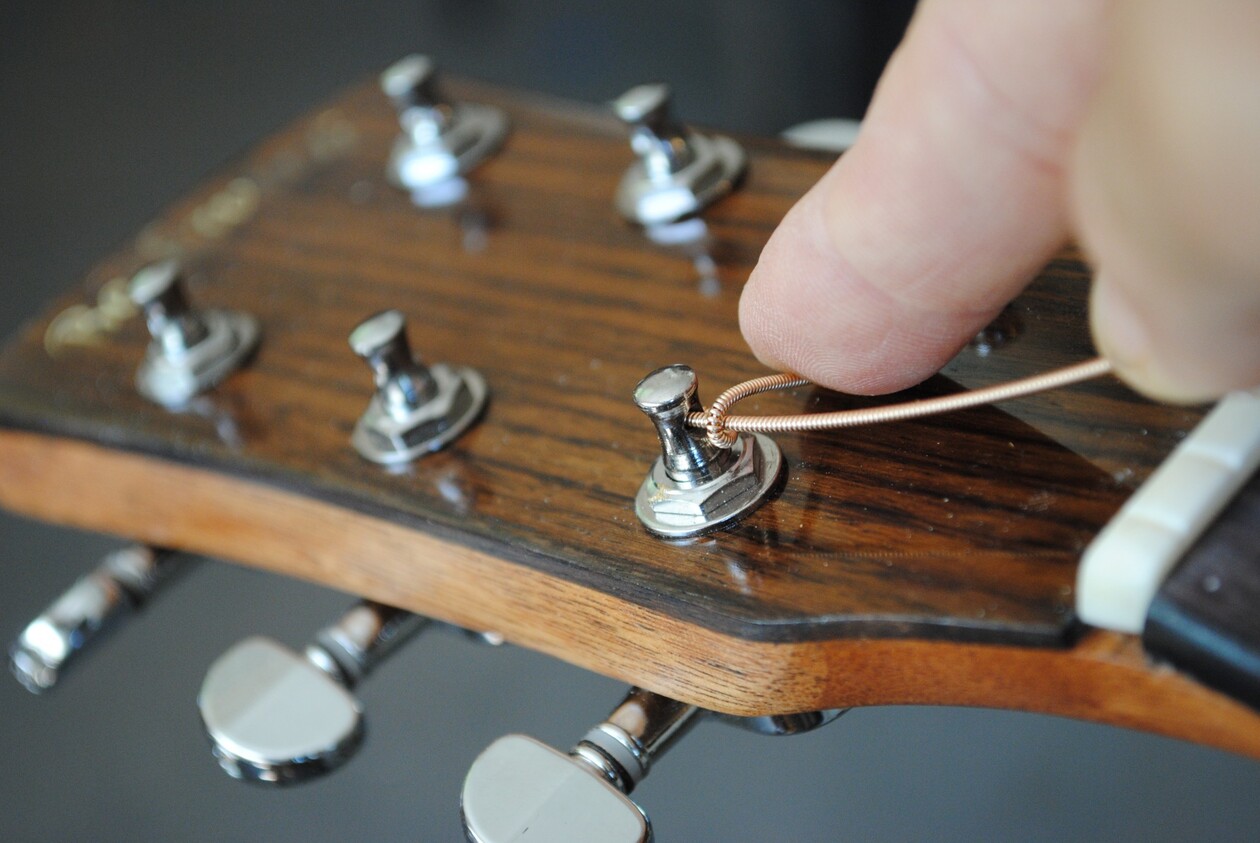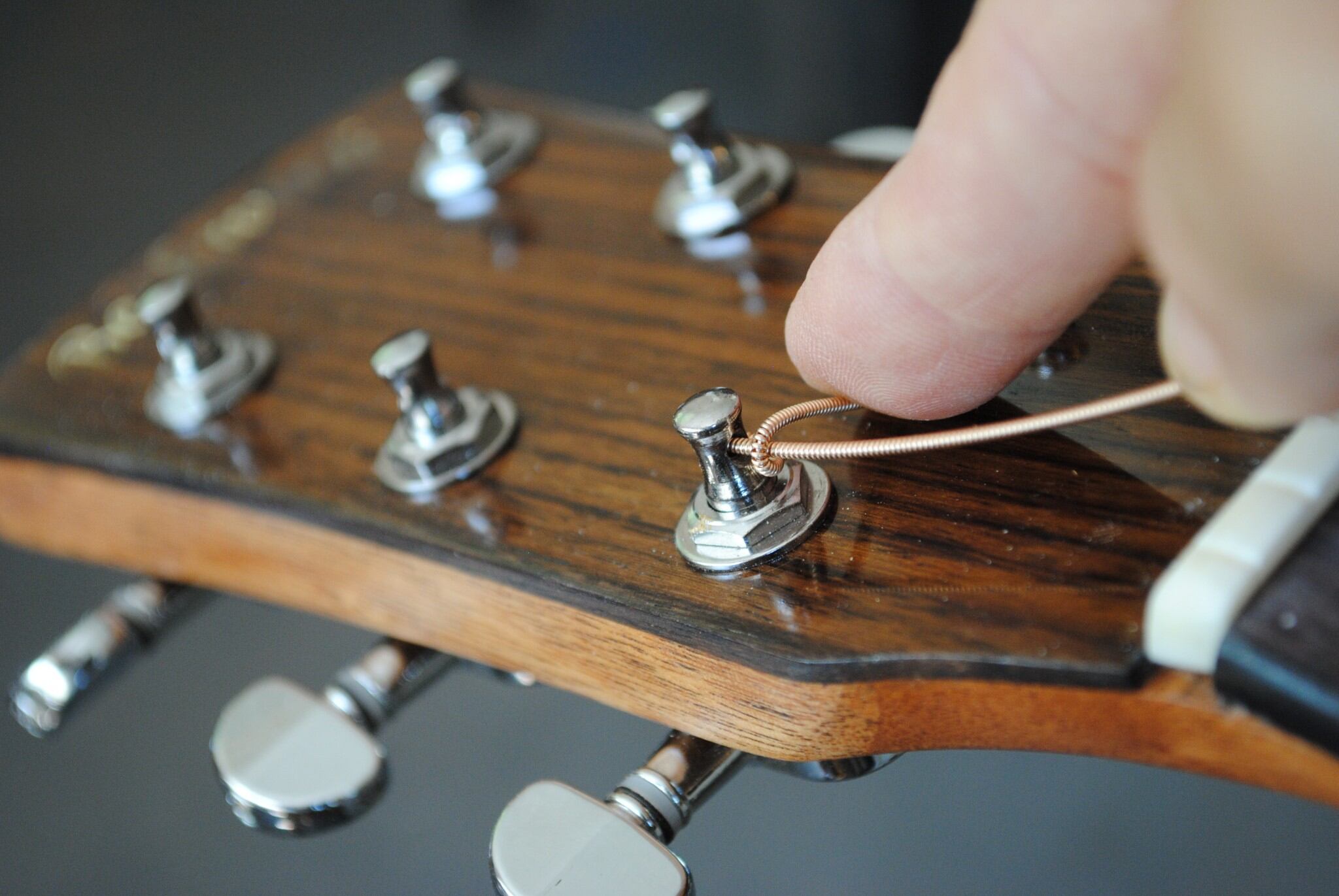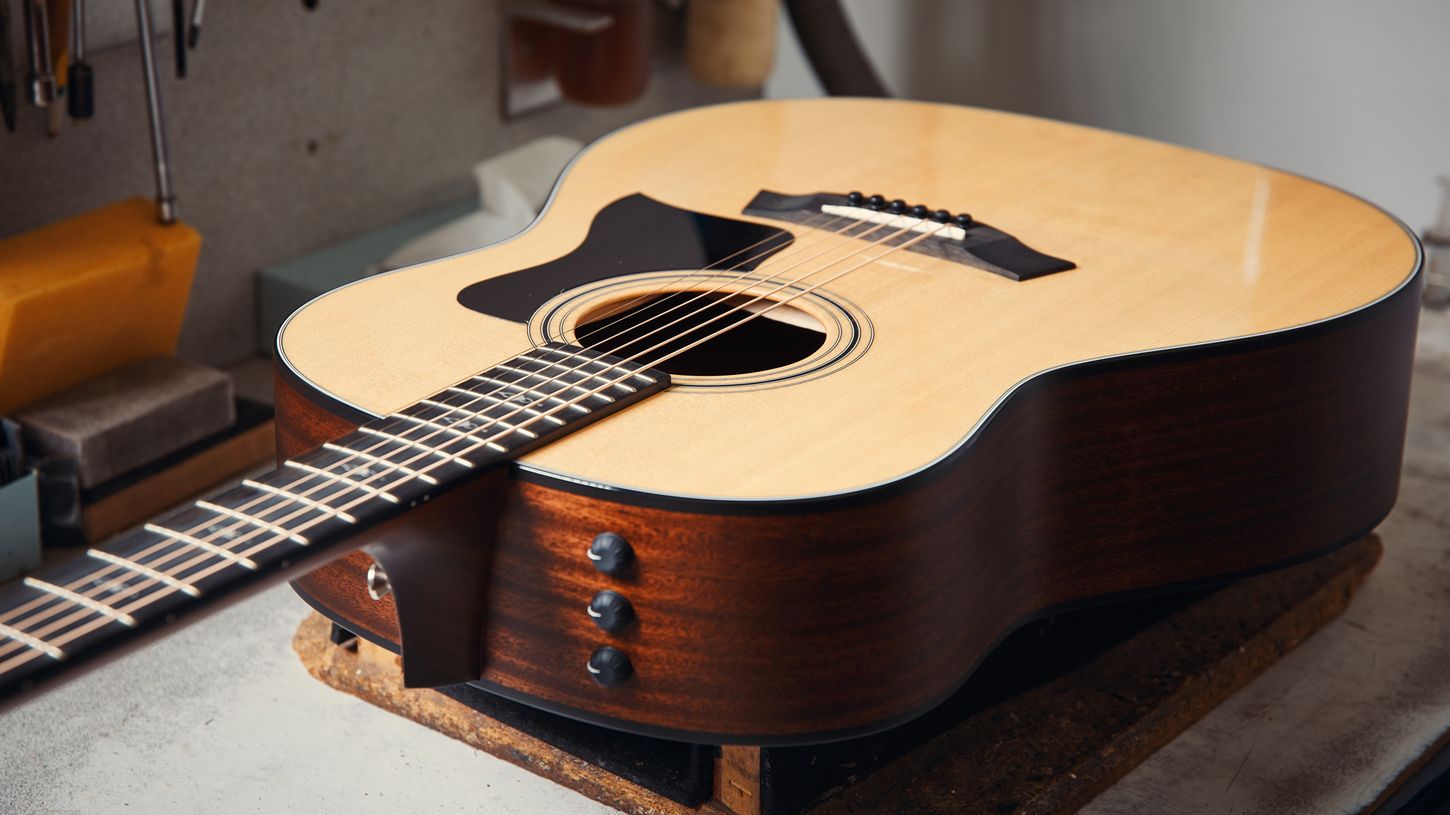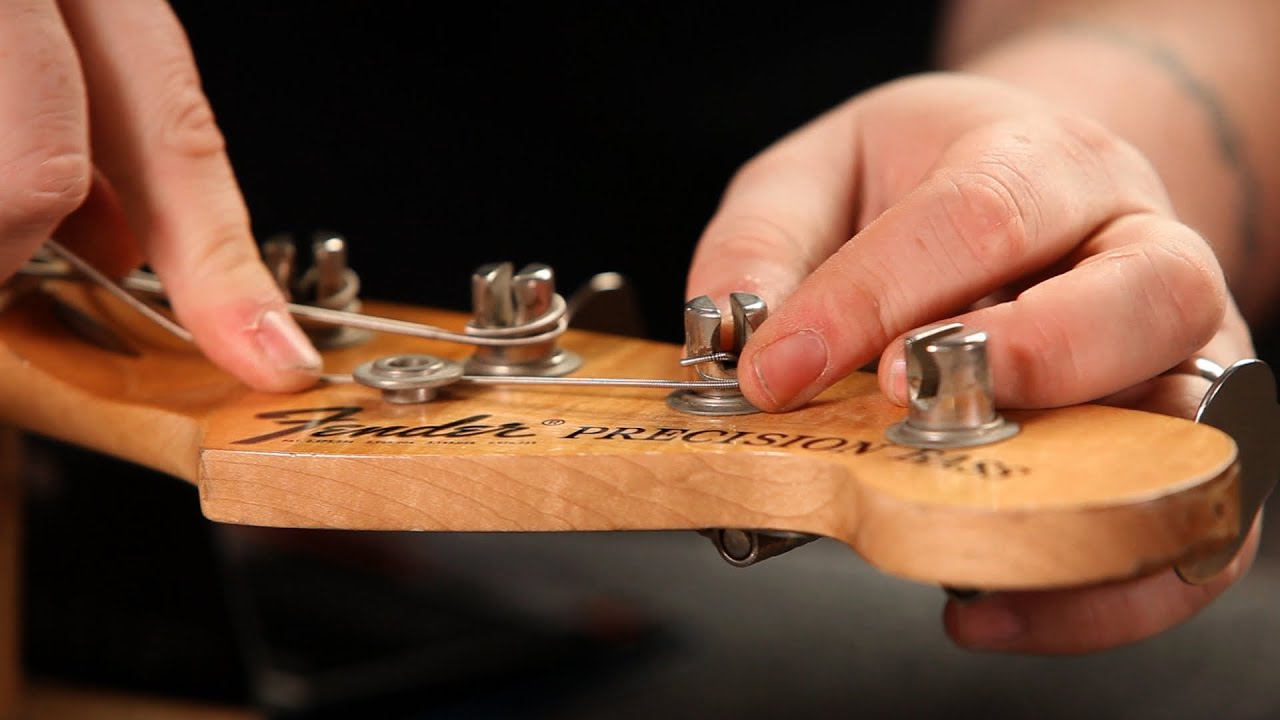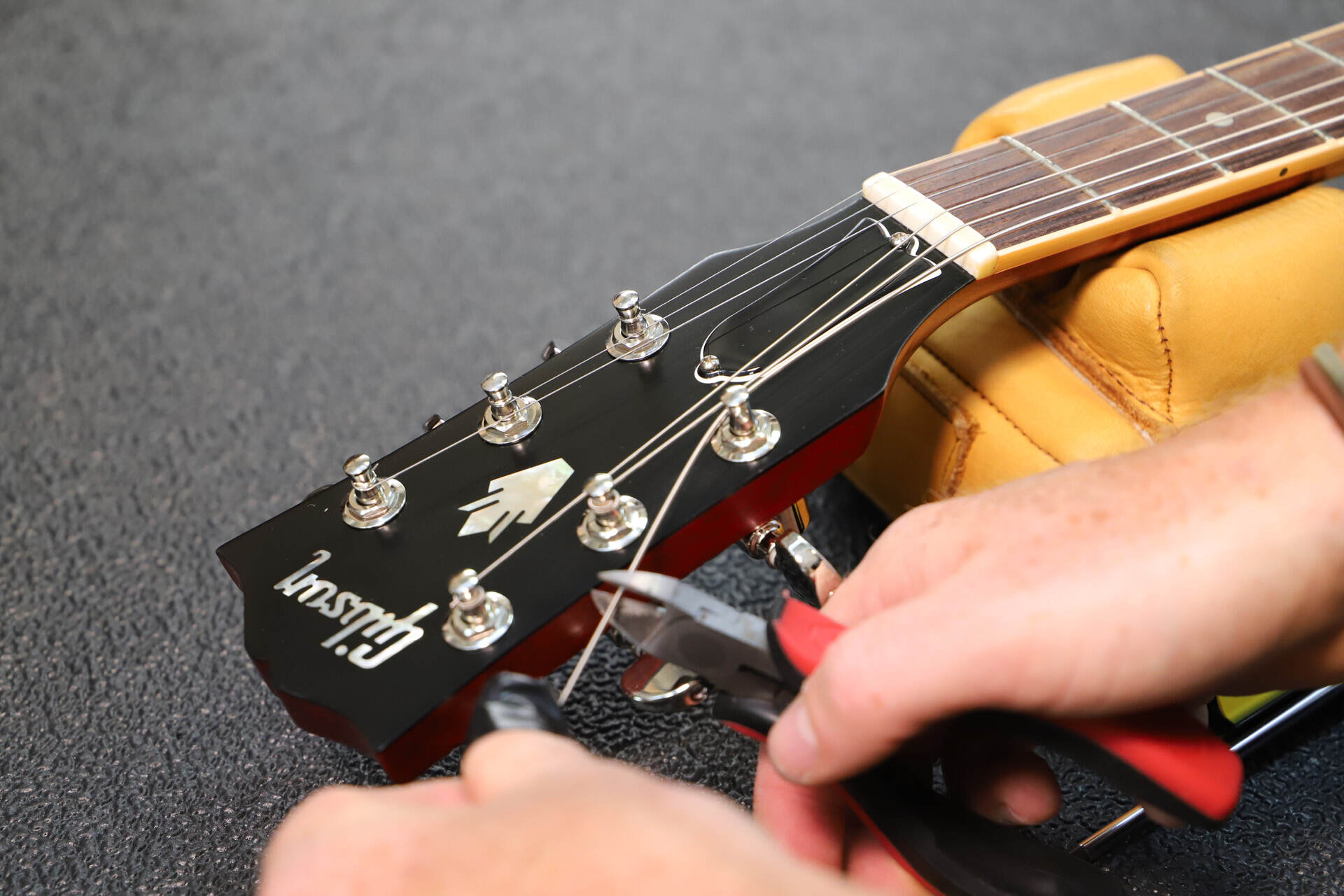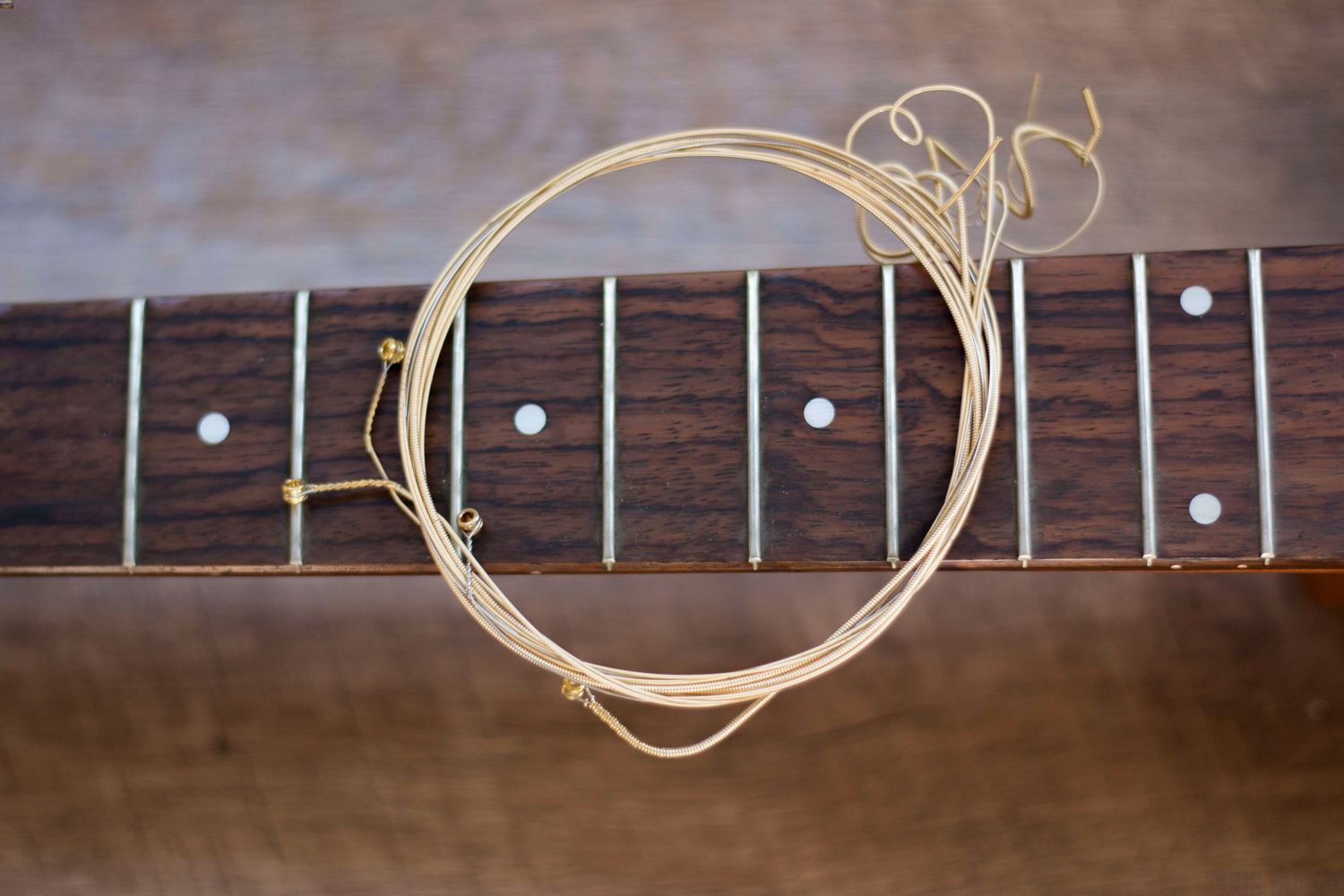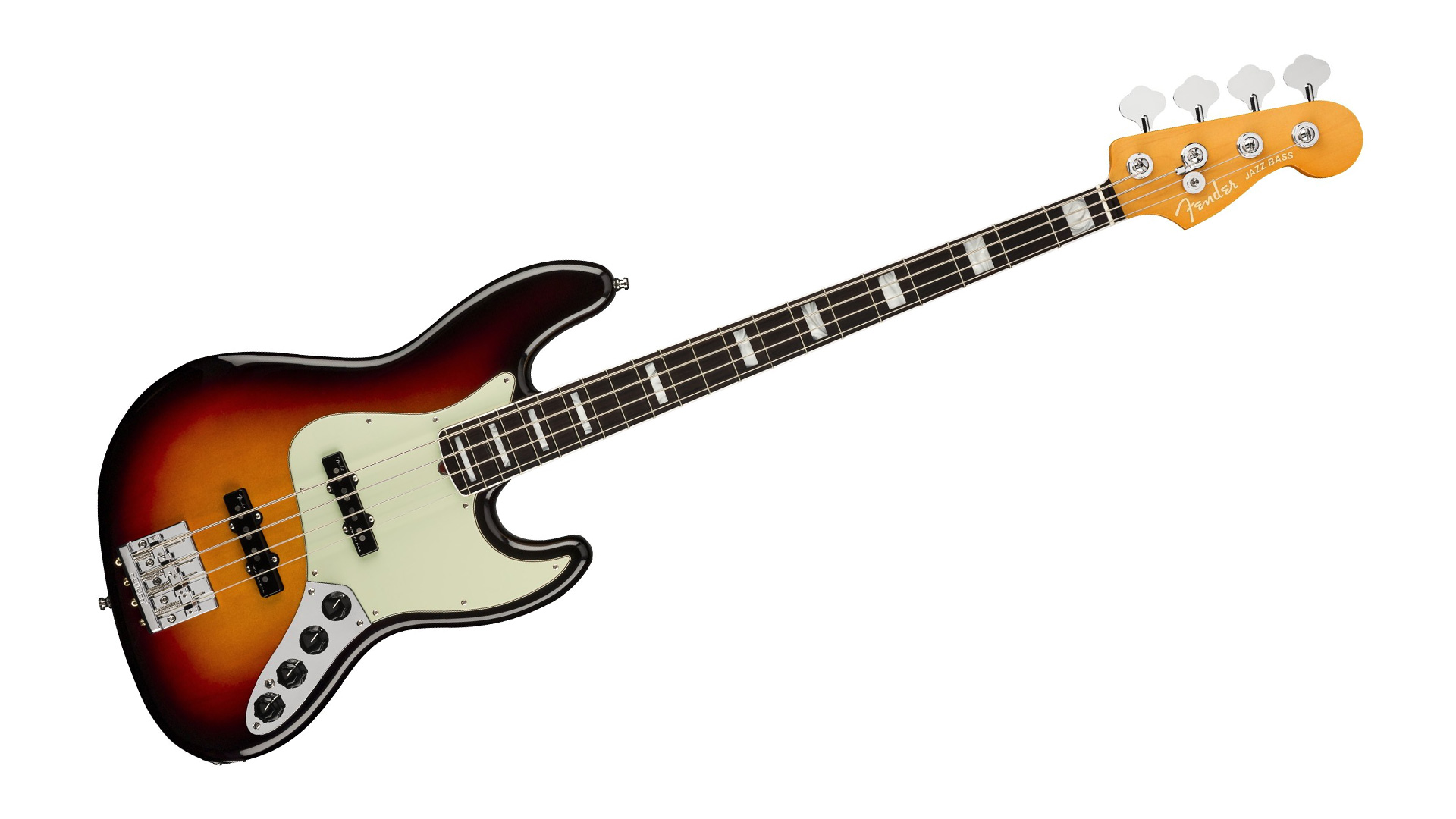Home>Instruments>Guitar>Why Are My Guitar Strings Buzzing
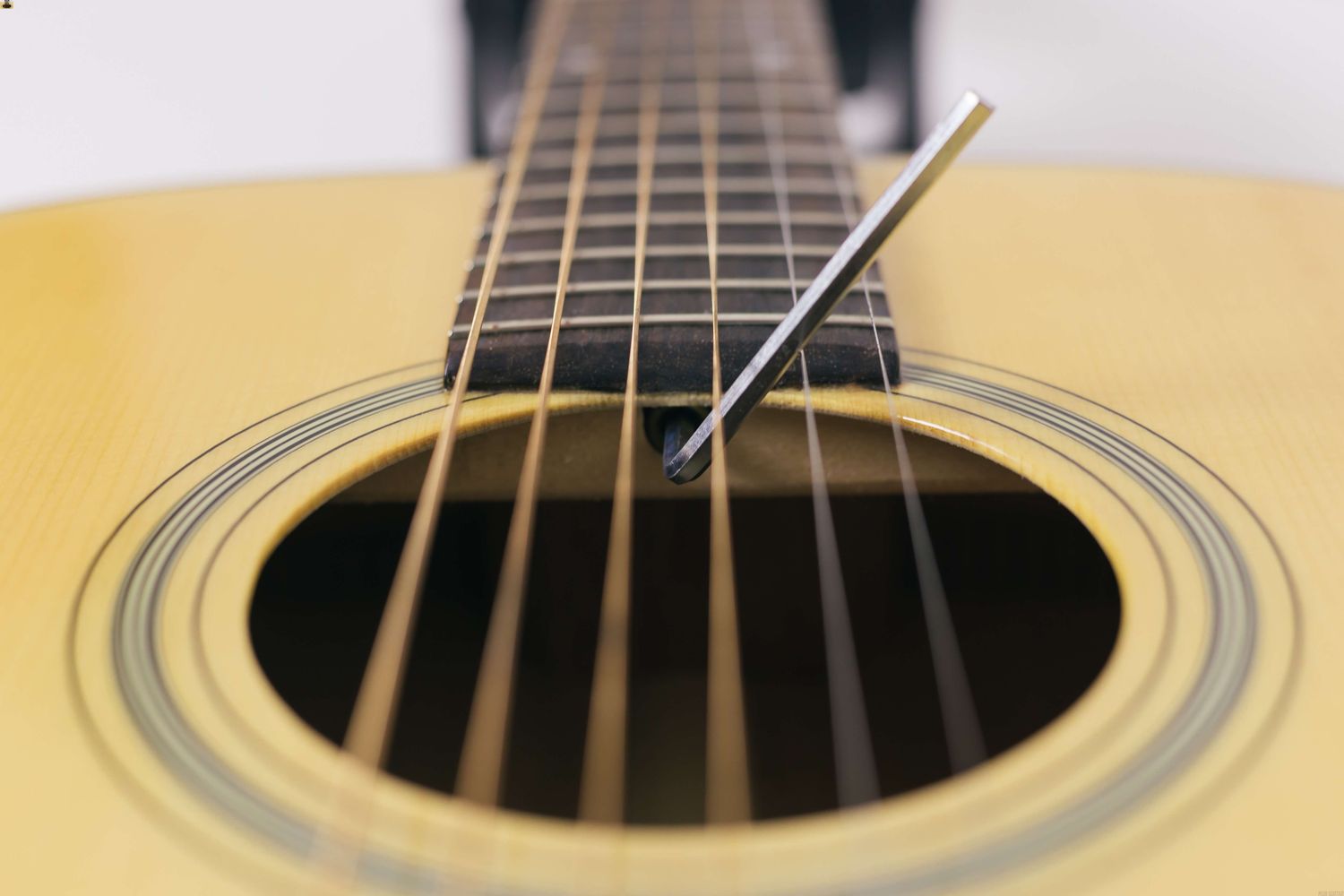

Guitar
Why Are My Guitar Strings Buzzing
Published: February 16, 2024
Discover the reasons behind your guitar strings buzzing and learn how to fix it. Expert tips and advice for guitar players.
(Many of the links in this article redirect to a specific reviewed product. Your purchase of these products through affiliate links helps to generate commission for AudioLover.com, at no extra cost. Learn more)
Table of Contents
Introduction
Understanding the Annoying Buzz: A Guitarist's Dilemma
As a guitarist, there’s nothing quite as frustrating as the unpleasant sound of buzzing strings disrupting the melody you’re trying to create. Whether you’re a novice or an experienced player, dealing with buzzing strings can be a common and perplexing issue. The buzzing sound not only affects the quality of your music but also dampens your playing experience. However, understanding the root causes of this nuisance and learning effective solutions can significantly enhance your guitar playing journey.
When your guitar strings buzz, it’s a clear indication that something isn’t quite right. It’s essential to address this issue promptly to prevent it from hindering your progress and enjoyment. This article delves into the common causes of guitar string buzzing and provides practical solutions to help you eliminate this irksome problem. By gaining insight into the factors contributing to buzzing strings and learning how to rectify them, you’ll be better equipped to maintain the impeccable sound quality of your instrument.
Whether you’re a dedicated strummer, a passionate fingerstyle player, or an aspiring rockstar, conquering the challenge of buzzing strings will elevate your musical prowess and bolster your confidence. Let’s embark on this enlightening journey to uncover the mysteries behind guitar string buzzing and equip ourselves with the knowledge to overcome it with finesse.
Common Causes of Guitar String Buzzing
Understanding the common culprits behind guitar string buzzing is pivotal in effectively addressing this irksome issue. Here are the prevalent causes that can lead to buzzing strings:
-
Inadequate Neck Relief: Insufficient or excessive bowing of the guitar neck can result in buzzing strings. When the neck lacks the proper curvature, the strings may come into contact with the frets, causing a buzzing sound. This issue is often exacerbated by fluctuations in temperature and humidity, which can affect the neck’s curvature.
-
Improper String Height: If the strings are set too close to the fretboard, they are more likely to buzz against the frets, especially when played with vigor. Conversely, excessively high string action can also lead to buzzing, as pressing the strings down to the frets becomes more challenging, causing them to vibrate unevenly.
-
Fret Wear and Irregularities: Over time, frets can wear down or become uneven, creating an uneven playing surface. This can cause the strings to buzz against the frets, particularly when playing certain frets or using specific string bends.
-
Inadequate Nut Slots: If the slots in the nut are not properly sized or shaped, the strings may sit too low or too high, leading to buzzing. The nut slots should be meticulously crafted to ensure the strings are positioned at the optimal height.
-
Loose Components: Loose tuning pegs, bridge pins, or other hardware can contribute to string buzzing. When the components are not securely in place, they may allow the strings to vibrate against them, resulting in an unwanted buzzing sound.
-
String Quality and Condition: Worn-out or low-quality strings are more prone to buzzing, especially if they have developed kinks, nicks, or uneven winding. Additionally, using the wrong gauge of strings for your playing style and guitar can also lead to buzzing issues.
By familiarizing yourself with these common causes of guitar string buzzing, you can begin to pinpoint the specific factors contributing to the issue with your instrument. Armed with this knowledge, you’ll be better equipped to explore effective solutions and restore the pristine sound of your guitar.
Solutions for Guitar String Buzzing
Addressing the buzzing strings on your guitar involves implementing targeted solutions that correspond to the specific causes of the issue. Here are practical remedies to mitigate and eliminate guitar string buzzing:
-
Adjusting Neck Relief: To rectify buzzing caused by inadequate neck relief, you can make truss rod adjustments to achieve the optimal curvature of the neck. This may involve tightening or loosening the truss rod, depending on the specific requirements of your guitar and the environmental conditions.
-
Setting Proper String Height: Ensuring the appropriate string action is crucial in preventing buzzing. Adjust the string height at the bridge and nut to achieve the ideal clearance, allowing the strings to resonate freely without contacting the frets.
-
Addressing Fret Wear: If fret wear is contributing to buzzing, consider having a professional luthier level, crown, and polish the frets to restore a smooth and even playing surface. In some cases, minor fret filing or replacement may be necessary to eliminate persistent buzzing.
-
Optimizing Nut Slots: Carefully filing and shaping the nut slots to accommodate the strings at the correct height can alleviate buzzing issues stemming from inadequate nut slots. Seeking assistance from a skilled guitar technician can ensure precise adjustments to the nut slots.
-
Securing Loose Components: Address buzzing caused by loose hardware by carefully inspecting and tightening any loose tuning pegs, bridge pins, or other components. Ensuring that all hardware is securely fastened will prevent unnecessary string vibrations.
-
Choosing High-Quality Strings: Upgrading to high-quality, properly gauged strings can significantly reduce buzzing. Select strings that are well-suited to your playing style and guitar, and regularly replace them to maintain optimal tone and playability.
By implementing these targeted solutions, you can effectively mitigate the buzzing strings on your guitar and restore its pristine sound quality. It’s important to approach each remedy with precision and care, and when in doubt, seeking the expertise of a qualified guitar technician can ensure the optimal setup and performance of your instrument.
Conclusion
Confronting the vexing issue of guitar string buzzing is an integral part of honing your skills as a guitarist and maintaining the exceptional sound quality of your instrument. By recognizing the common causes of buzzing strings and implementing targeted solutions, you can overcome this challenge with confidence and precision.
As you embark on your journey to address guitar string buzzing, remember that patience and meticulous attention to detail are paramount. Each remedy, whether it involves adjusting the neck relief, optimizing string height, or securing loose components, contributes to the harmonious interplay of your guitar’s components and the seamless resonance of the strings.
Furthermore, seeking the expertise of a seasoned guitar technician can provide invaluable assistance in diagnosing and rectifying buzzing issues, ensuring that your guitar is finely tuned to deliver an impeccable playing experience.
Ultimately, by delving into the intricacies of guitar string buzzing and mastering the art of troubleshooting and fine-tuning your instrument, you’ll emerge as a more discerning and proficient guitarist. Embrace the process of refining your guitar’s setup and performance, and revel in the rewarding transformation of conquering the buzzing strings that once posed a formidable challenge.
Armed with a deeper understanding of the factors influencing guitar string buzzing and equipped with practical solutions, you’re poised to elevate your musical journey and savor the melodious fruits of your dedication and expertise.

